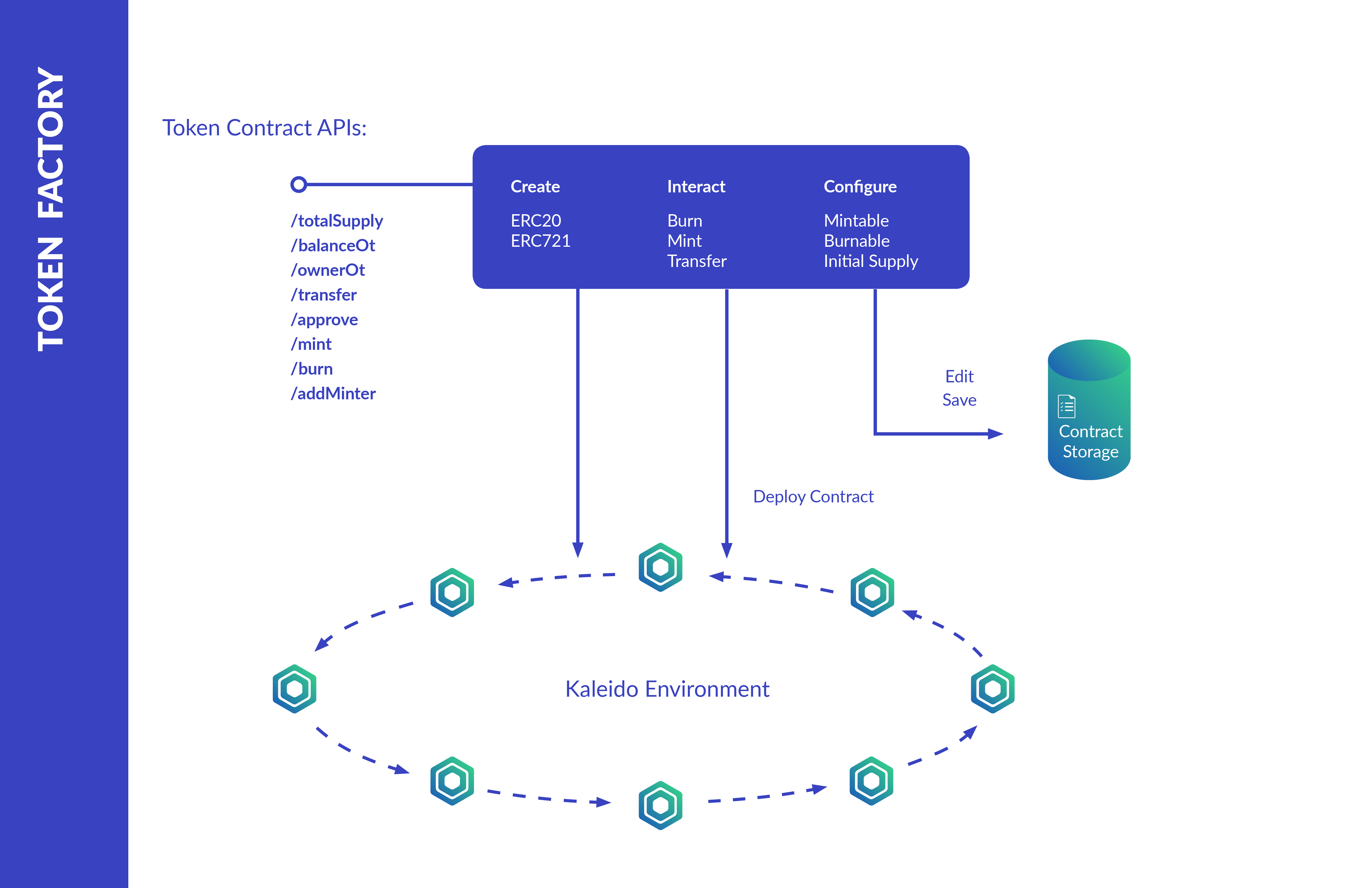Digital Assets Introduction

Enterprise Tokens are the representation of real world or digital assets on the blockchain. Capable of being modeled as fungible or non-fungible, tokens provide a vehicle for secure digital transactions without reliance on intermediaries and third party trust institutions. By leveraging tokens, enterprises can create a trustworthy framework for asset tracking, settlement and custody, and streamline the activities around asset trading transactions.
Note: learn more about why you might use tokens in your solution in Digitized Assets (Tokens)
Kaleido provides the ability to:
- Create token contracts for both fungible and non-fungible tokens based on high quality standard libraries
- Manage token lifecycles such as minting and burning
- Transfer tokens and check balances
- Transfer tokens with privacy preserving Zero Knowledge Proofs
Token Models
Fungible Tokens
Fungible tokens are fully exchangeable with each other. Fiat currencies are one example of fungible assets; a US dollar bill has exactly the same value as any other US dollar bills. As fungible assets, they are transferred from one owner to another in exchange for products and services, however, exchanging one dollar bill for another dollar bill usually does not make sense as they are of exactly the same value.
Fungible tokens are typically used for tracking balances and making payments. An example use case is binding the tokens to an organization’s account balance in a payment account, so that payments can be done with token transfers, and periodical netting and settlement can be done by querying the resulting token balances.
With fungible tokens, each account maintains a balance based on the amount of tokens the account owns. Tokens can be easily transferred to other Ethereum accounts through swap techniques or direct transactions. Just like bank transfers, when a token transfer is executed, the source account is debited the amount of the transfer, while the beneficiary account is credited the same amount. Kaleido supports the ERC20 token specification for fungible tokens.
Non-fungible Tokens
Non-fungible tokens, which sometimes are represented by the acronym NFT, are unique instances. Each token is given a unique ID to distinguish it from others in the same token smart contract. A token always has an owner, and because each token is treated uniquely, their values can also be different. Some tokens may represent rare attributes with provable scarcity, and as a result they are likely in demand by more buyers and potentially worth more than those that represent only common attributes.
NFTs support ownership transfer and they can also be traded.
Another example use case is assigning a non-fungible token to a real estate property. It can be transferred from the Ethereum account of the bank to another Ethereum account of the house owner once the mortgage is paid off. Kaleido supports the ERC721 token specification for non-fungible tokens.
